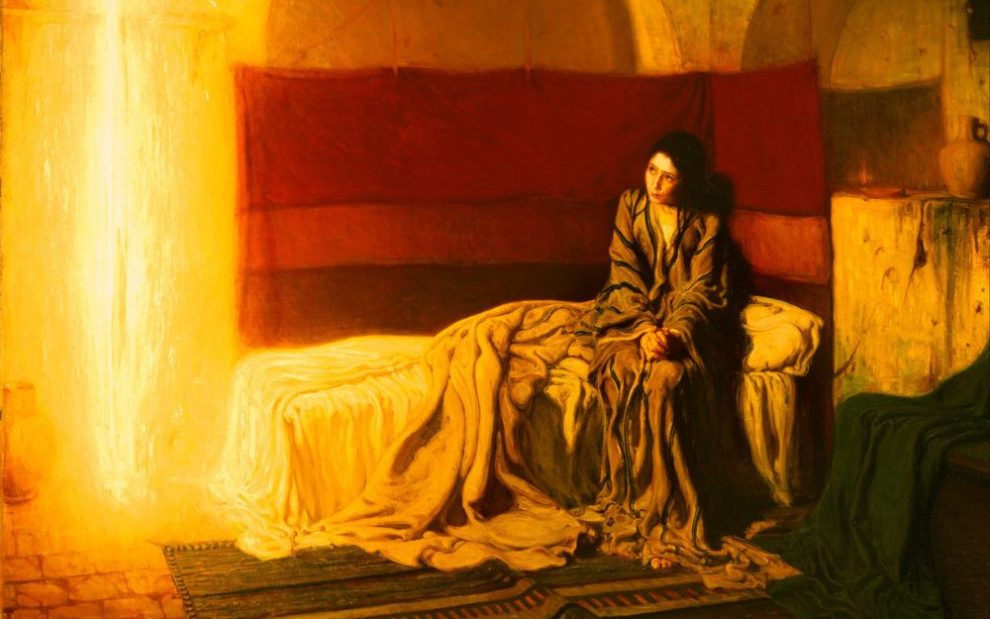Will they think I’m a whore? Will they call him a bastard? Will we be killed? I often wonder if these were the thoughts that ran through the mind of Mary, a terrified teenage girl, after accepting the wildly unbelievable invitation to carry the messiah. What did the angel mean by “full of grace”? Is Joseph going to leave? What if no one believes me? Unsure of what the future held for her, a little brown girl from Nazareth changed the course of human history because of her courageous choice to participate in the in-breaking of God’s revelation, now miraculously incarnate in the baby called Emmanuel, God with us.
But why did God choose Mary? Why was this girl selected to participate in God’s revelation?
The biblical motif of reversal, where God exalts the lowly and puts down the mighty from their thrones, is prominent in both the Hebrew and the Christian scriptures. It suggests a new order of life and hope where God is at work in the lives of the people as well as in the entire social order. While it is possible that God, in God’s infinite wisdom, could have chosen a plethora of paths to enter humanity, as the biblical theme of reversal demonstrates, God often chooses those who are most despised and marginalized to bear the gospel’s prophetic message. In first-century Palestine, this would have been a poor woman of marginal socioeconomic status.
We know from historical and biblical records that Mary was a peasant girl from Nazareth who likely belonged to a Jewish (and later Christian) circle called the anawim: a remnant of Israel’s economically poor who lived in pious dependence on God. Despite Mary’s poverty, the gospel writers, specifically Luke, present her as an active agent in Christian salvation whom God chooses to actualize the divine promises made to Israel. Mary is blessed because she assented to God’s will, making it possible for God’s salvific purposes to be accomplished through her.
God’s choice of Mary and the resulting effects of that choice are most evident in her Magnificat. Appearing in Luke 1:46–55, Mary’s song foreshadows other prominent themes of Luke’s gospel, reinforcing that God is holy, mighty, and merciful toward all those who fear God and that the dawning of the messianic age reveals God’s continued concern for the poor, the widows, and the orphans. The Magnificat ought to be read as Mary’s loving response to God’s own gift of self-communication (i.e., grace) in her life.
So, why did God choose Mary? Because God wanted to in the gratuitousness of God’s being. God’s choice to set one apart must be understood as an unmerited gift to be received with open hands, a humble heart, and a trusting yes. By bearing the fullness of God’s grace in the wombs of our hearts where the gift of the Son and his spirit reside, we—like Mary—can give the love we have received from God back to God, our selves, and our neighbors.
This article also appears in the May 2023 issue of U.S. Catholic (Vol. 88, No. 5, page 49). Click here to subscribe to the magazine.
Image: Wikimedia Commons/ Annunciation, Henry Ossawa Tanner














Add comment